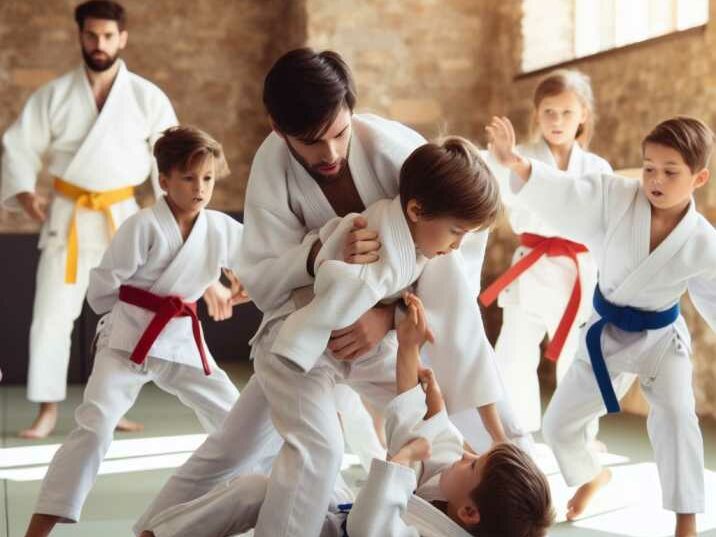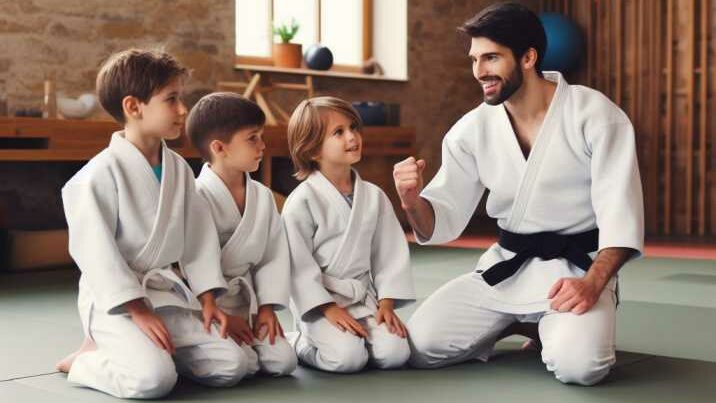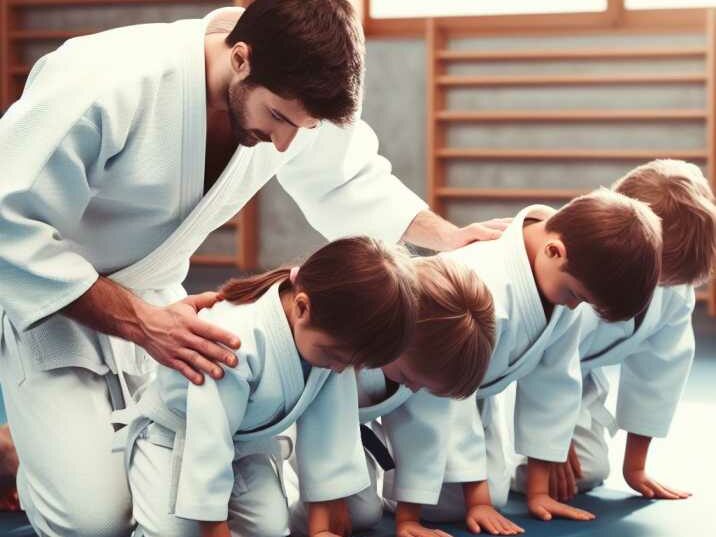Introduction
Table of Contents
Judo a Good Sport for Kids
As parents, we are constantly on the lookout for activities that not only keep our children active but also contribute to their overall development. One sport that often stands out is Judo. In this comprehensive guide, we delve into the question, “Is Judo a good sport for kids?” to provide you with insights that will help you make an informed decision for your child.

The Power of Judo
Judo, translated as “gentle way,” is a Japanese martial art that focuses on using an opponent’s force against them. But beyond its combative nature, Judo offers a myriad of benefits for children.
Physical Development
Judo involves a range of movements that enhance flexibility, agility, and coordination. Through grappling and throwing techniques, kids develop strength and endurance, laying a solid foundation for a healthy, active lifestyle.
Mental Toughness
In the dojo, children learn discipline and respect for their opponents. Judo fosters mental toughness as kids face challenges, make split-second decisions, and learn to persevere through both victories and defeats.
Social Skills
Judo is not just an individual sport; it’s a community. Children learn to work together, respect their peers, and develop camaraderie. These social skills extend beyond the dojo, positively influencing their interactions at school and in other activities.

Why Judo Stands Out for Kids
Judo stands out as a sport for kids due to its unique combination of physical and mental benefits. Let’s explore why it might be the perfect fit for your child.
Safety First
Unlike some contact sports, Judo prioritizes safety. Trained instructors ensure that kids learn proper techniques and adhere to strict safety guidelines. This focus on safety makes Judo an ideal choice for parents concerned about their child’s well-being.
Character Building
Judo places a strong emphasis on character development. Respect, humility, and self-discipline are fundamental principles instilled in young Judokas. These values extend beyond the mat, shaping children into responsible and respectful individuals.
Adaptive Learning
Every child is different, and Judo recognizes that. The sport allows for individual progression, ensuring that each child learns at their own pace. This adaptive learning approach fosters a sense of accomplishment and boosts self-esteem.
Conclusion
In conclusion, the answer to “Is Judo a good sport for kids?” is a resounding yes. Judo’s unique combination of physical, mental, and social benefits makes it an excellent choice for children of all ages. From fostering discipline to building character, Judo provides a holistic approach to a child’s development.
As parents, we want our children to not only be active but also to learn valuable life skills. Judo offers a safe and structured environment for kids to explore their physical and mental capabilities while instilling essential values that will benefit them throughout their lives.

Judo instills discipline, respect, and camaraderie in young practitioners, setting the foundation for a lifetime of positive values.
In the journey of discovering the right sport for your child, consider the transformative power of Judo — a sport that not only builds strong bodies but also shapes resilient and respectful individuals.
Judo empowers children with physical fitness, mental toughness, and valuable life skills.
Frequently Asked Questions
- Is Judo Safe for Kids? Answer: Judo is considered one of the safest martial arts for children. Instructors prioritize safety, ensuring proper techniques and supervision during training.
- At What Age Can Kids Start Judo? Answer: Many Judo dojos accept children as young as five. It’s essential to check with the specific dojo for their age requirements.
- Will Judo Make My Child Aggressive? Answer: No, Judo promotes discipline and control. Children learn to channel their energy positively and respect their opponents.
- What Equipment Does My Child Need for Judo? Answer: Basic Judo attire includes a judogi (uniform) and a belt. Your dojo will provide specific guidelines.
- How Can Judo Benefit My Child Academically? Answer: The discipline and focus developed in Judo often translate into improved concentration and academic performance.
- What is the time commitment for Judo classes? Answer: The time commitment varies by dojo, but typically, Judo classes for kids range from 45 minutes to an hour. As your child progresses, they may have the option to attend more advanced or specialized classes.
- How can I support my child’s interest in Judo at home? Answer: Encourage your child by showing interest in their progress, attending their competitions or belt ceremonies, and creating a positive and supportive environment. Additionally, practicing basic movements and exercises at home can reinforce what they learn in class.
- Is Judo suitable for children with special needs? Answer: Judo can be adapted to accommodate children with special needs. Many dojos offer inclusive programs. Search for dojos with experienced instructors in inclusive Judo training.
- How often should my child attend Judo classes for optimal progress? Answer: Consistency is key. Most dojos recommend at least two classes per week for steady progress. Find a balance that suits your child’s schedule and allows them to fully engage in their Judo training.
- Are there competitive opportunities for kids in Judo? Answer: Yes, Judo offers competitive opportunities for kids, including local tournaments. Engaging in competitions can enhance their skills and provide a sense of achievement. Look for dojos that actively participate in local Judo events.
- What safety measures are in place during Judo classes? Answer: Judo dojos prioritize safety with measures such as padded mats, proper equipment, and trained instructors. Ensure the dojo your child attends adheres to safety standards and has a well-maintained training environment.
- How can I track my child’s progress in Judo? Answer: Most dojos use a belt system to indicate a student’s proficiency. In addition, instructors often provide regular feedback. Opt for dojos with transparent progress tracking and communication systems.


